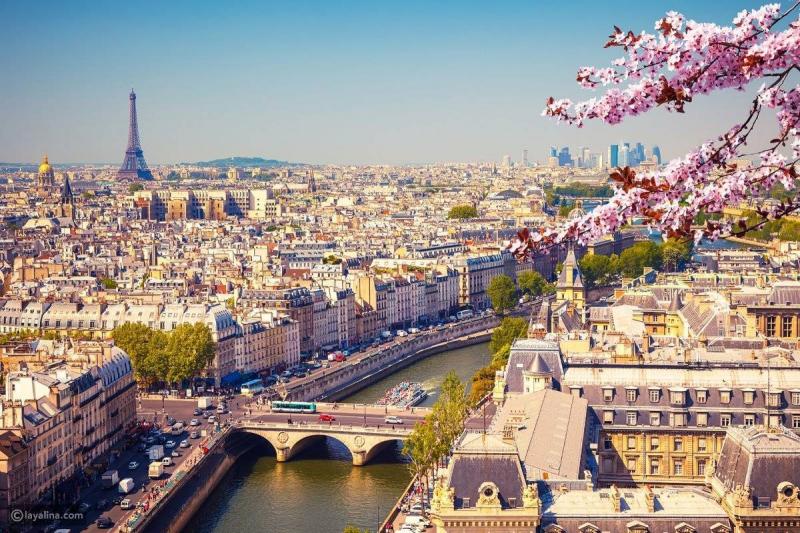France is skillfully using intimidation tactics to pressure Lebanon into reaching an agreement with the International Monetary Fund (IMF), warning that otherwise, hunger will be Lebanon's fate. Paris sees this as the best option to end the economic and social crisis, labeling it "the only and last opportunity." While Lebanon suffers in the midst of the crisis, France seems more "burned" than the Lebanese themselves in seeking a solution to extricate the country from its predicament. Perhaps Paris wants to demonstrate that its "white hand" in Lebanon has borne fruit and that the option of committing Lebanon was trustworthy. Consequently, French officials have closed doors on themselves and thought long and hard to come up with one single solution: the IMF. This solution is more of a non-solution that Paris insists upon, disregarding the fact that the 3 to 3.5 billion dollars will not resolve the crisis, considering that this amount will barely cover the annual current account deficit of 2.5 billion dollars. Furthermore, it dismisses the reality that Lebanon will drown further in hard currency debts that it cannot afford, which were already one of the main causes of the economic collapse. Paris turns a deaf ear to this argument, continuing to promote the fund and threatening that the country is headed towards famine if Lebanese officials refuse to continue the agreement with it.
This is exactly what Pierre Duquesne, the UN Special Coordinator for International Assistance to Lebanon, aimed to convey during his meeting with several journalists last night at the Pine Palace. The French diplomat intentionally made this meeting the last before a prepared dinner at the embassy before returning to his country. For over an hour, he tried to advocate the choice of the IMF. For him, "this is not a punitive option against Lebanon. It does not aim to reduce jobs and increase taxes; rather it is the optimal choice and the only and last opportunity for Lebanon to limit the collapse, attract investments, and increase job opportunities for social development and economic growth. It is the unique solution for the country to exit its economic and social crisis and grow the private sector."
Duquesne is aware that the situation is not easy, but he believes it is "feasible". How? The French diplomat draws on what he observed during his recent tour with Lebanese officials to express optimism about making a significant breakthrough. He states, "Officials have emerged from the denial phase I sensed six months ago and have begun to realize the seriousness of the crisis, even if some still try to assert their ability to pull Lebanon out of this crisis." Nevertheless, Duquesne does not explain how he felt the denial was lifted, especially since Lebanese performance remains unchanged and Lebanon has not met its commitments to the international community regarding the agreement with the IMF. The bottom line is that he felt the issue of loss distribution is no longer their priority, indicating that "everyone benefited from past economic conditions and everyone shares responsibility for this crisis, but we have to jump over this issue and focus on future steps." In a diplomatic manner, Duquesne responded when asked about the opposition of the Governor of the Central Bank of Lebanon, Riad Salameh, to the implementation of reform measures, saying, "Salameh did not say that during my visit to him."
Simply put, the special coordinator for international assistance to Lebanon announced the birth of a new economic model for Lebanon, but with one problem: both France and Lebanon are aware that managing the country and operating it in the old way has become a thing of the past, and neither have a vision for the characteristics of the new economic system. Thus, Duquesne echoes what Lebanese people say on café sidewalks without offering a solution or his country's vision for a model that could pull Lebanon out of its crisis. He repeats the phrase "new economic system" multiple times before reverting to the key term of his meeting: "the IMF."
Therefore, he took all the "coloring pens" he had to beautify the option of the fund, going as far as to promote that "the permanent representatives at the United Nations, including Russia and China, agree on the priority Lebanon must commit to: electing a president and entering into an agreement with the IMF," stressing that "there is international support for Lebanon and its stability, and that French President Emmanuel Macron cares about Lebanon, even if he has other interests; however, Lebanon must prove its readiness by enacting necessary reforms and legislating the needed laws." He added, "I am here to support you and to convey France's message to you, but Lebanon must act."
What if Lebanon does not follow the path outlined by France and the West? Duquesne answers that "the fate will be famine knocking on the doors of the Lebanese and an exacerbated crisis. Thus, the international community will only provide humanitarian aid, but not through the state, and France will certainly be among the helpers."
Duquesne was not alone in carrying the banner of the "fund," as he was also aided by his country's ambassador, Anne Grou, who attended the meeting and emphasized the importance of reaching an agreement with the IMF that will not resemble the debts that Lebanon has previously drowned in. She urges a swift completion of the agreement, considering that the Russian-Ukrainian crisis has placed 15 to 20 countries in crises resembling the Lebanese crisis. Therefore, "the agreement with the fund will be more challenging as Lebanon will not be alone and will not be a priority for the international community."




